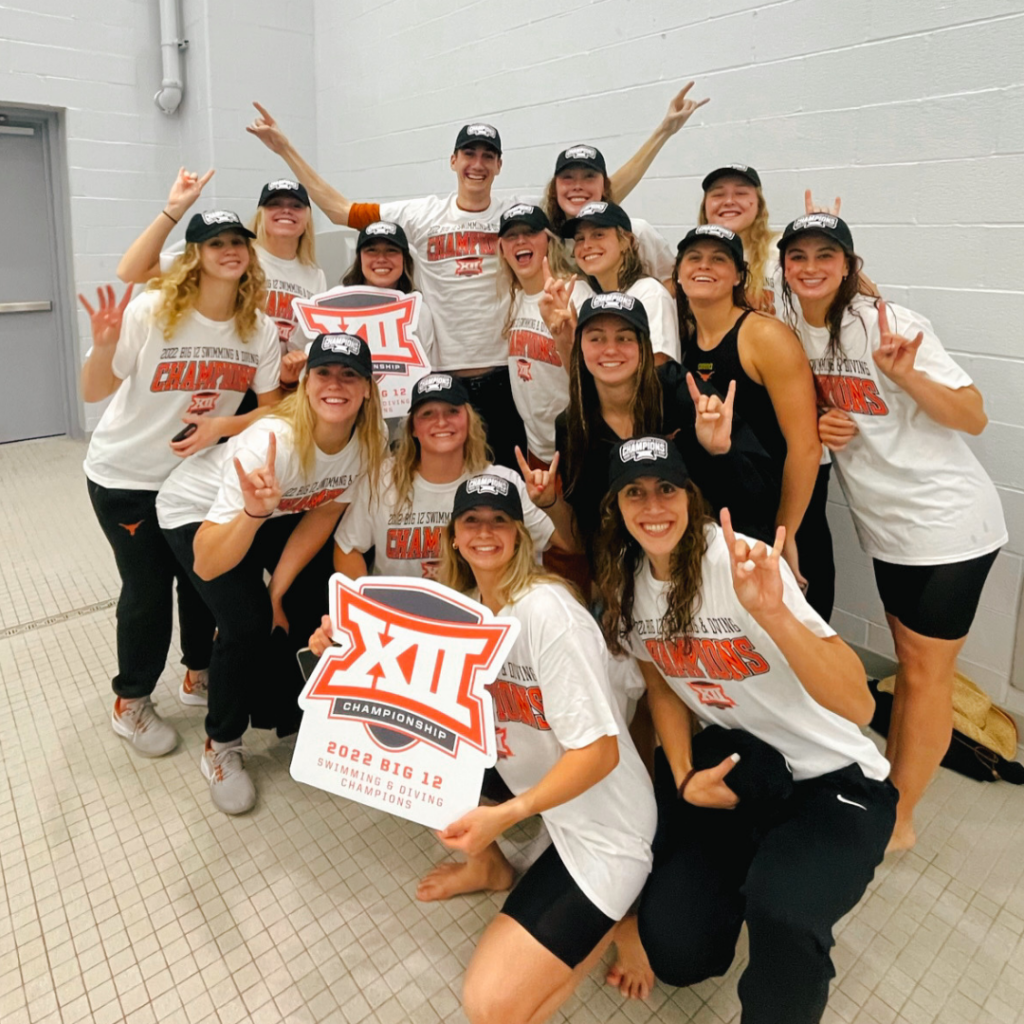For University of Texas swimmer Riley Courtney, she knew when it was time to step out of the pool and focus on her mental health.
Her eating disorder had begun to consume her life and impact her performance in the water. She entered the locker room one afternoon with her entire team present and explained the situation. Essentially, she told them she needed a break.
“I was really worried about people thinking that I wasn’t committed or that I wasn’t hard-working,” Courtney said.

Instead of viewing Riley as a quitter or feeling dismayed towards their teammate, the team rallied around her. Through hugs and messages, Riley’s departure away from the pool was the strongest decision she could have made in their eyes.
The University of Texas women’s swimmers do periodic shout-outs to one another for performing well or doing something good for themselves. Riley’s shout-out and the sense of community surrounding the program helped her overcome the internal battles. It gave her people to turn to in her time of need.
Swimming was a prominent piece of who she was at that moment, but when she decided to take time for herself, she not only learned the power of a healthy mindset but that she was capable of even more in her sport.
“Everyone was on the same page that I was doing a different kind of work outside of the pool,” Courtney said. “That made me feel like I was bettering myself in the sport, because even though I’m not training physically…I’m working on a totally different aspect of myself that is going to help me.”
And even though she was not swimming, she still attended practices and meets to cheer on the same teammates who supported her day in and day out.
Through the first few weeks, Riley felt all sorts of emotions, from frustration to impatience. She simply wanted to be back on the deck where she belonged with her anger rooted in a “genuine desire to swim.”

She decided that her well-being was more important, though, and this decision to improve her mind and body exclusively allowed for her to improve. She stopped blaming herself for letting the team down and began to view her self-help as crucial to her individual success and contributions.
“By helping me I’m helping my team,” Courtney said. “I was actively working very hard.”
Outside of the sport, Riley’s interactions with friends and family reflected that of someone with an eating disorder. Yet even when she tried to mask her problems, her support system remained intact.
They disassociated Riley from the eating disorder, and that made all the difference.

“My best friends came to treatment with me and came to therapy with me to learn how to help me,” Riley said with a smile. “I didn’t like leaning on other people for help, and I have done a really good job of doing that.”
This realization helped save her life, and Courtney recognizes the importance of relationships in battling a mental illness.
She knows it is never good to battle solo.
“Lean on the people that care about you and love you,” Courtney said.
